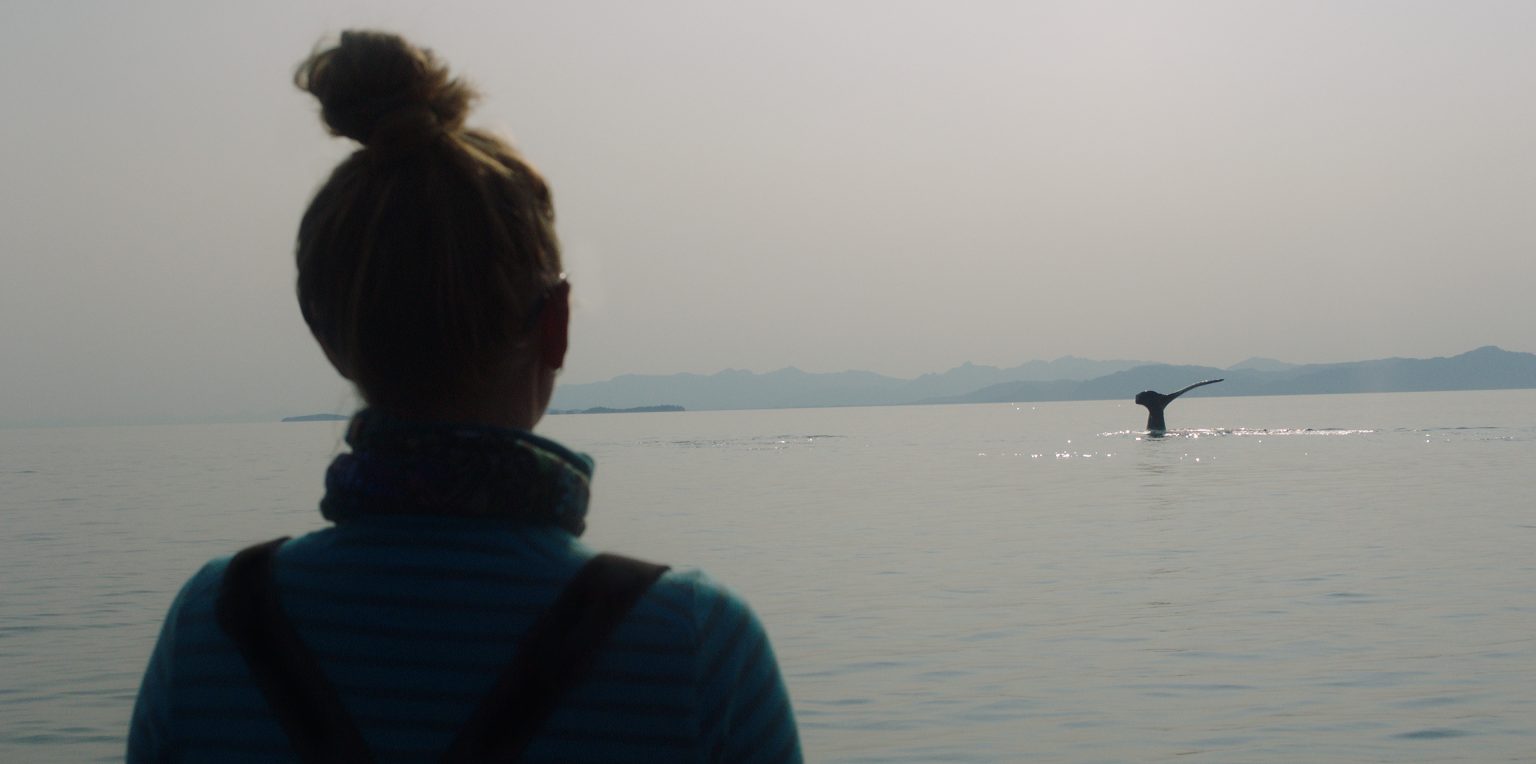“Studying whale culture might be more about glimpsing something in ourselves,” says Dr. Ellen Garland in the new documentary Fathom. She’s a scientist who studies humpback whalesong, and over the course of the film, is on an expedition to determine where the spread of one specific song ends in French Polynesia, and where the next begins. The bounds of a community, in other words. At first glance, this seems a strange and esoteric study that has no bearing or impact on humans, but in its slow and naturalistic style, Fathom shows that whalesong has much more to say about us, and the scientists who study it, than we might have thought.
Garland’s work is only half of the film’s focus. The other deuteragonist is Dr. Michelle Fournet, a charismatic and enthusiastic researcher who is trying to figure out if a specific whale call––known as the “whup”––is what humpbacks use to greet each other. For this, she assembles an underwater audio device that can broadcast whups underwater and record what the whales might sound back, and enlists two other female researchers to bring this work to the remote waters of Alaska. Garland, on the other hand, says a heartfelt goodbye to her husband in Scotland. She knows the field work will feel lonely, separated from her loved ones for long stretches of time, but the scientific knowledge she’ll procure will be worth it.
Fathom is a slow burn, unwilling to show all of its cards at once, and instead preferring to let audiences discover its mysteries alongside Fournet and Garland. It proceeds quite typically at first as a science documentary, explaining the significance behind the whups and the French Polynesian whalesong, while featuring footage of the scientists doing their work. But when Fournet’s team starts hitting snags, they must double back to land and re-strategize. Here is where Fathom explores somewhat uncharted territory: being unafraid to indulge in the downtime between actual field work. The three women set up camp on a grassy patch of wilderness near the sea. They cook, they cut each other’s hair. They practice measuring distances on water by eye. They laugh, they talk, they bond as humans.
These quiet but affecting scenes humanize the researchers who do this kind of work and represent them as people with inner lives and worlds. We often think of scientists as separate and impartial observers, but Fathom renders them (and us) as part of the natural world. During their time on land, Fournet and her team talk about how difficult it is to reintegrate into human society after being in nature for weeks or months at a time, because, as Fournet puts it, “this is a much safer place to be a human.” One of the women calls society “reality,” and Fournet pushes back against the idea. The natural world is the real world, she says, not the one we constructed for ourselves, away from the wild.
You get the feeling that there is not much in human society left for Fournet, who mentions that she’d even left a dog and a partner in the past because she couldn’t fit them back into her life. Science is lonely, isolating work. What goes unspoken but is deeply felt in the undercurrent of the film is that Garland and Fournet have both made sacrifices to continue their pursuit of scientific knowledge, often at the cost of human connection. But new modes of human connection is exactly what Fathom hopes to build upon. Garland believes that looking at whale culture––which is the oldest global system of culture and communication on earth––can provide a map for what human connection can look like in the future; Fournet imagines out loud an alternate, future lifestyle that might safely combine her love of fieldwork with her desire for motherhood.
Fathom, like the study of whalesong, isn’t just about the whales––it’s also about how we can bridge the gap between “human” and “nature” to create something meaningful. Its unhurried, contemplative pace and gorgeous nature cinematography are a welcome reminder to appreciate the wilderness still inherent in all of us.
Fathom premiered at Tribeca Festival and is now on Apple TV+.

